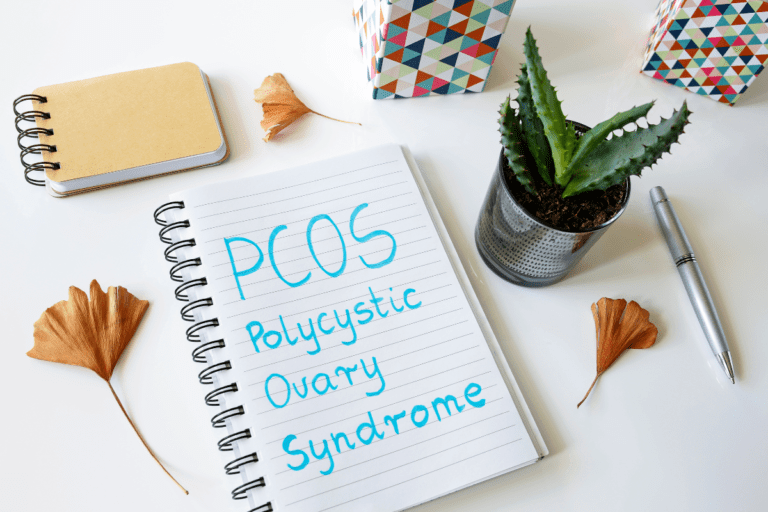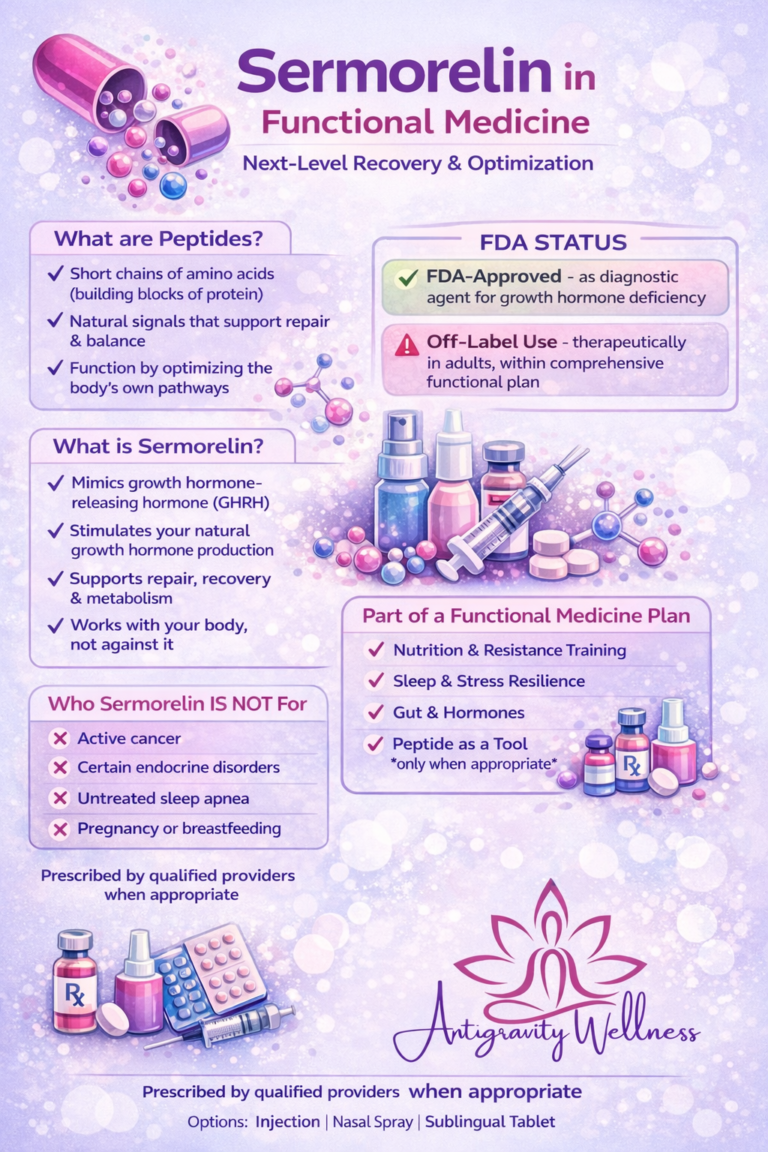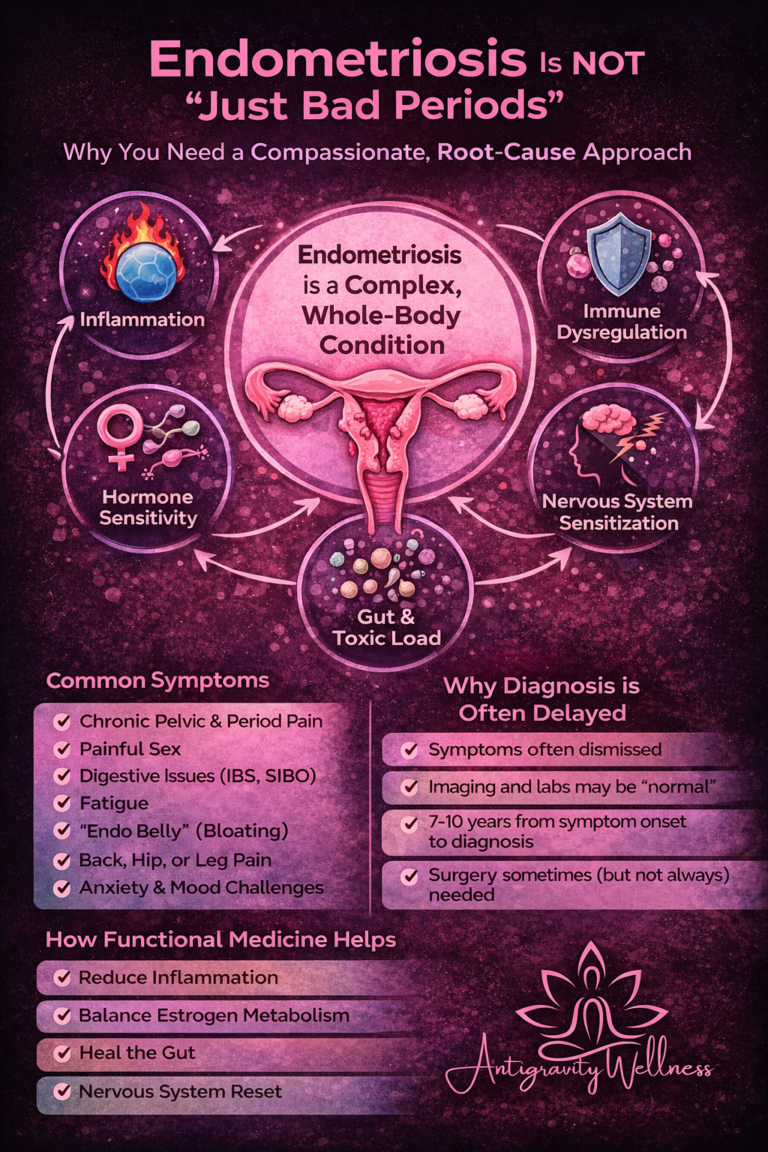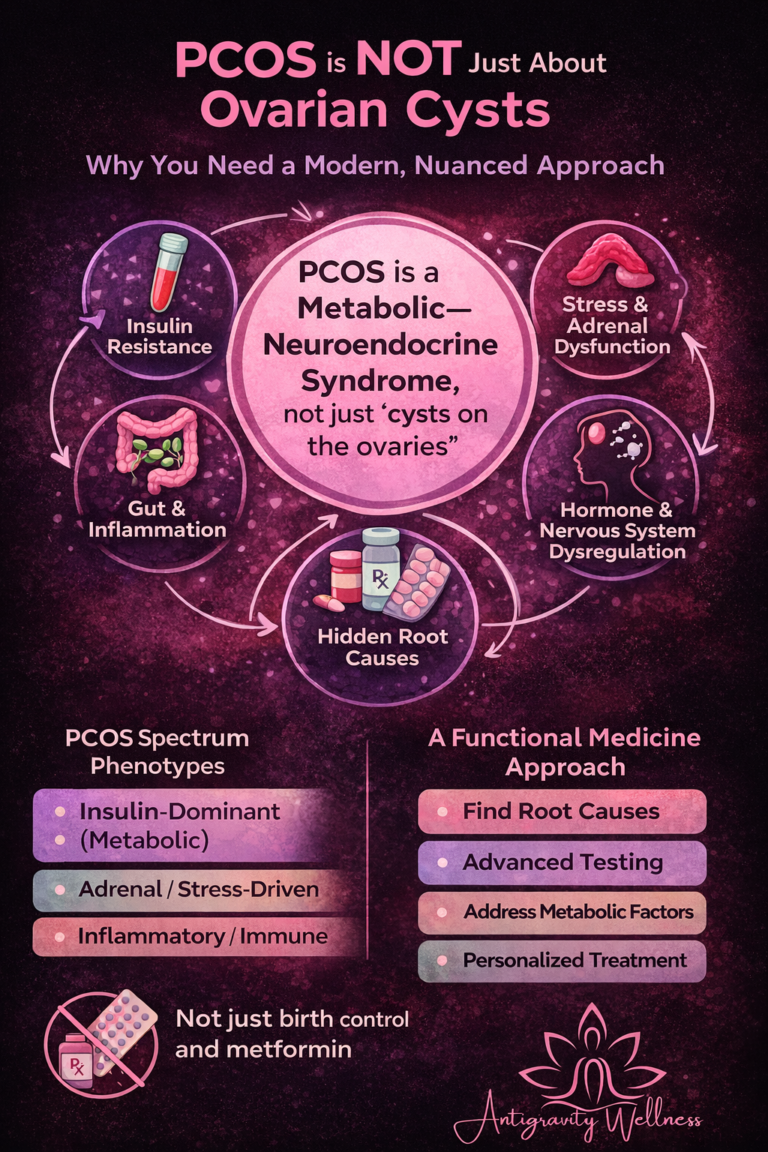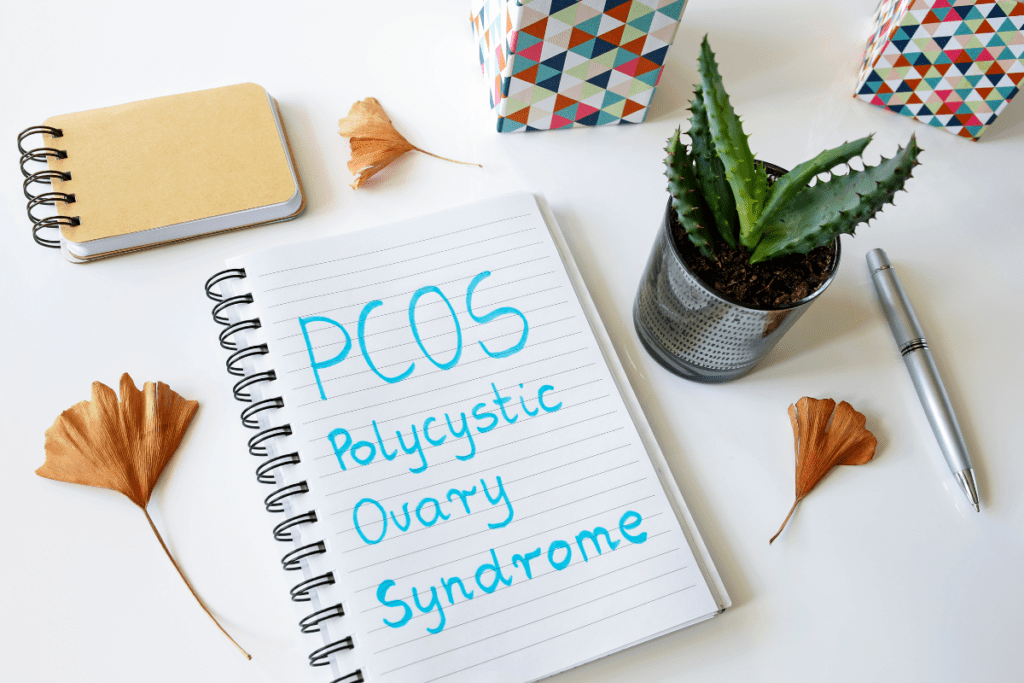
Polycystic Ovary Syndrome (PCOS) is one of the most common hormonal disorders affecting women, yet it is often misunderstood or misdiagnosed. As women transition into perimenopause, symptoms of PCOS can change—sometimes worsening, sometimes improving—making it essential to monitor hormone levels and symptoms closely during this time. A holistic, multifaceted approach is key to managing PCOS effectively and improving quality of life.
What is PCOS?
Polycystic Ovary Syndrome (PCOS) is a complex endocrine disorder that affects how a woman’s ovaries function. It is characterized by hormonal imbalances that can lead to a range of symptoms and complications.
Diagnostic Criteria for PCOS
According to the Rotterdam Criteria, a PCOS diagnosis is made if two of the following three are present:
- Irregular or Absent Ovulation: Leading to infrequent or missed periods.
- Hyperandrogenism: Elevated levels of male hormones (androgens), causing symptoms such as acne, hirsutism (excessive hair growth), and hair thinning.
- Polycystic Ovaries: Identified via ultrasound, showing multiple small follicles (often described as a “string of pearls”).
Symptoms of PCOS
PCOS symptoms vary from woman to woman but often include:
- Irregular periods or amenorrhea (absence of menstruation).
- Difficulty getting pregnant due to ovulation issues.
- Weight gain or difficulty losing weight.
- Excessive hair growth on the face, chest, or back (hirsutism).
- Thinning hair or hair loss on the scalp.
- Acne or oily skin.
- Skin tags or darkened skin patches (acanthosis nigricans).
- Fatigue or low energy.
PCOS and Fertility
One of the hallmark complications of PCOS is its impact on fertility. The hormonal imbalances associated with the condition can disrupt ovulation, making it more challenging to conceive. However, many women with PCOS can still achieve pregnancy with the right combination of lifestyle changes, supplements, and, if necessary, medical interventions.
PCOS and Perimenopause
The transition into perimenopause can bring about changes in PCOS symptoms.
1. Symptom Worsening
For some women, fluctuating hormone levels during perimenopause can exacerbate PCOS symptoms such as:
- Weight gain.
- Increased facial or body hair growth.
- Worsened insulin resistance, leading to blood sugar imbalances.
2. Symptom Improvement
For others, the decline in estrogen and androgen levels during perimenopause may result in reduced:
- Acne.
- Hirsutism.
- Ovarian cyst formation.
Despite these potential improvements, PCOS does not simply “go away” with menopause. It remains important to monitor hormone levels and address symptoms to prevent complications such as cardiovascular disease and type 2 diabetes, which women with PCOS are at higher risk for developing.
Holistic Management of PCOS in Perimenopause
PCOS requires a personalized, multifaceted approach to address symptoms and improve overall health.
1. Dietary Modifications
- Low-Glycemic Diet: Helps stabilize blood sugar and reduce insulin resistance.
- Anti-Inflammatory Foods: Focus on whole, nutrient-dense options like vegetables, lean proteins, healthy fats, and whole grains.
- Eliminate Triggers: Avoid processed foods, excessive sugar, and alcohol.
2. Exercise
- Strength Training: Builds muscle mass, which improves insulin sensitivity.
- Aerobic Exercise: Supports cardiovascular health and helps with weight management.
3. Herbal and Nutritional Supplements
- Inositol: Improves insulin sensitivity and supports ovulation.
- Saw Palmetto: Reduces androgen levels to manage acne and hirsutism.
- Vitamin D: Supports hormone regulation and immune health.
- Omega-3 Fatty Acids: Help reduce inflammation.
4. Medical Treatments
- Hormonal Therapy: Birth control pills, or hormone replacement therapy may be used to regulate cycles and manage symptoms.
- Metformin: For managing insulin resistance in some women.
- Other medicines: may also be used to help control symptoms.
5. Stress Management
Chronic stress exacerbates hormonal imbalances. Incorporating yoga, meditation, or mindfulness practices can help regulate cortisol and improve overall well-being.
The Importance of Working with a Specialist
PCOS is a complex condition that evolves over time, especially during perimenopause. Working with a provider fluent in both PCOS and perimenopausal care ensures:
- Tailored treatment plans that address your unique needs.
- Regular monitoring of hormone levels and symptoms.
- Preventative care to reduce long-term risks like cardiovascular disease and diabetes.
Further Reading and Resources
- PCOS SOS by Dr. Felice Gersh
- The Period Repair Manual by Lara Briden
- Research Articles:
Holistic PCOS Care at Antigravity Wellness
At Antigravity Wellness, we specialize in the care of perimenopausal and menopausal women, including those with PCOS. Through our functional medicine approach, we combine:
- Dietary modifications.
- Personalized exercise plans.
- Herbal and nutritional supplements.
- Medical treatments tailored to your needs.
If you’re experiencing symptoms of PCOS or have been newly diagnosed, our team is here to help you navigate this transition and achieve your health goals. Schedule a brief initial consult today to learn more about how we can support you.

